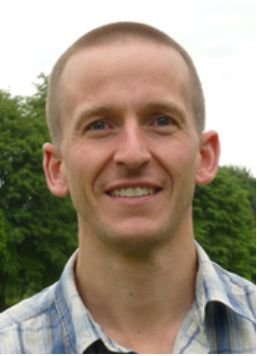
Research Fellow
Pete is an Independent Research Fellow in the Wolfson Atmospheric Chemistry Labs. As an atmospheric chemist his research focuses on the complex processes that break down chemicals in the atmosphere, and ultimately control global challenges such as air pollution and climate change. Pete works across the major sub-disciplines of the field, from instrument development, through laboratory and field experiments, to the use of chemical models to challenge and improve our understanding of atmospheric chemical phenomena.
Project Overview
For improved Air Quality Management in West Africa, my group is co-designing an affordable, robust, and open-source system for air pollution measurement. It is built from readily available off-the-shelf components, and aims to bring a scalable air pollution measurement approach to lower middle income countries that can be sustained by in-country practitioners at modest cost.
Did you work with an RSE from the beginning of the project?
This project builds on previous work in developing a novel low-cost sensor air pollution measurement system. This was initially a chemistry PhD project, but it quickly became apparent that the skills of the group research software engineer, (RSE) Killian Murphy, would enable us to achieve far more that we had planned in terms of instrument control and data handling.When developing the proposal for this GCRF research translation project it was clear from the outset that we required extra RSE capacity and expertise in order to achieve the project deliverables. A second RSE position was advertised as soon as the project was funded, which was filled by Stuart Lacy, previously a research associate in the University of York’s Health Sciences Epidemiology and Cancer Statistics Group.
What are the key challenges that RSE collaboration has helped to overcome?
Throughout the project, Killian and Stu’s expertise has proved invaluable.An example is a piece of work on the sensor instrument data processing and manipulation. A major challenge in the field of low-cost air pollution sensors is the development of robust calibration methods. In a relatively short amount of time, Stu and Killian have managed to develop and demonstrate a reliable approach for our system, which will be critical when we deploy these units in West African partner countries.
Not only has this work enabled the deliverables of this translation award, but it has also changed the direction of the research through design modifications and will likely form the basis for several scientific publications. The results of this work, and the high-quality documentation produced, has also significantly changed how my group operates, enabling and encouraging better coding and data practices across the whole team.
Having worked with RSEs, will it change your approach in the future?
Definitely. So much of what we do relies on the creation, management and manipulation of data. Having RSEs in the team not only enables new opportunities for the types of work that can be carried out, but also increases effectiveness and efficiency across the team’s research activities. This is becoming even more critical as research data and software requirements for accessibility and reproducibility become more widespread, and is helping the next generation of atmospheric chemists become highly proficient programmers.
Can you tell us more about the current or future projects?
My projects have data and software development as a central component, and so benefit from my experiences working with RSEs. Having these skills in my group has enabled me to embark on more ambitious projects with more societal impact, which were recently recognised through a Nature Diving Global Impact Award.